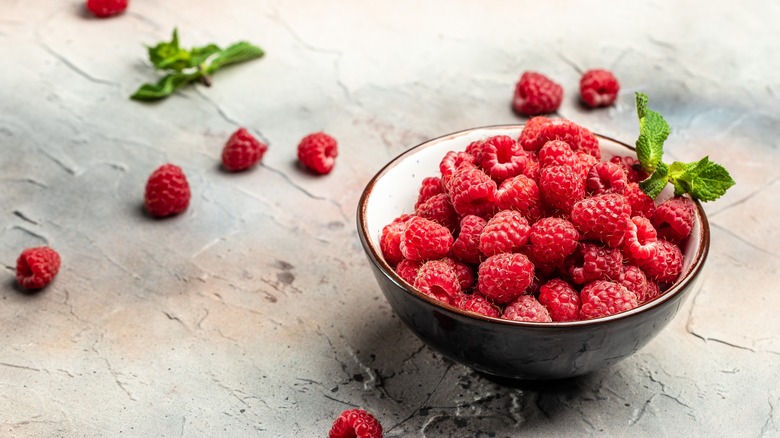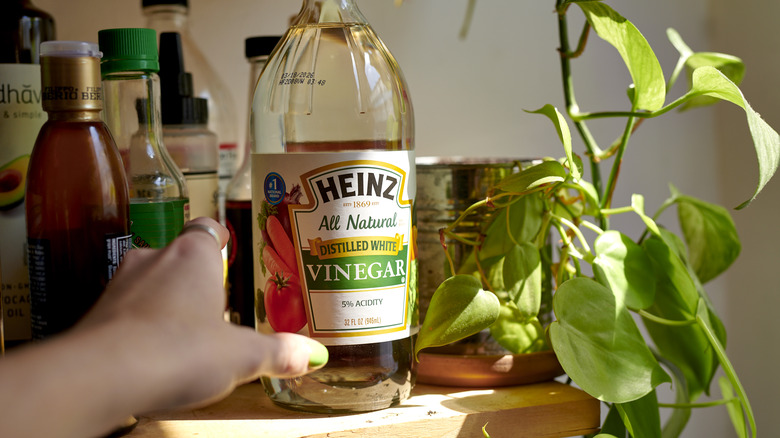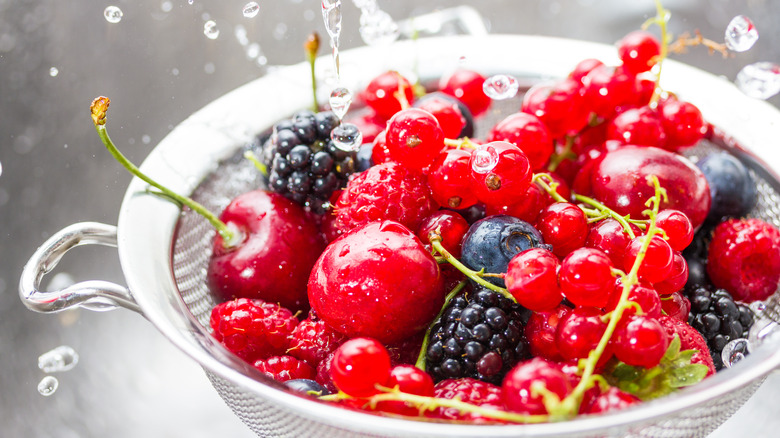How You Should Properly Wash Raspberries
As with most other fruits, washing raspberries is essential for removing dirt and impurities before eating. However, raspberries are a touch more delicate than other types of fruits, which means you must clean them carefully to ensure they remain intact. While other fruits can be rinsed in their packages and stored in the fridge, it's best to only rinse as many raspberries as you plan on eating at that time. This is to prevent water from clinging to the berries, which will cause them to go bad at an accelerated rate.
After selecting the berries you want to clean, take a bowl and concoct a cleansing solution by adding one portion of white vinegar and three portions of water. Delicately dunk the berries into the bowl briefly, then transfer them to another bowl for drying. The drying bowl should have a paper towel inside, as it will soak up excess water. You can gently pat the raspberries to dry them further, but be careful not to harm the outer skin.
If you're wondering whether white vinegar is really a necessary part of the rinsing technique, you should know that it offers a few important benefits.
How a vinegar solution can ensure raspberries are clean and safe
White vinegar not only cleans raspberries, but it can also extend how long this fruit lasts in your home. That's because white vinegar is highly acidic, which helps it ward off mold growth, bacteria, microbes, pesticides, and other impurities. Pesticide contamination is particularly worrisome, especially when it comes to more persnickety fruits, including raspberries.
Raspberries face a lot of risk as a produce crop. They're a favorite source of nutrition for numerous insects, they're susceptible to mold and fungal growth, and they're generally not as robust as other fruits. As a result, farmers often resort to using pesticides on the berries to ensure their crops thrive. While pesticide can improve the yield of crops, it's highly toxic to humans when consumed.
As a result, you must wash all produce before eating, and with raspberries, you must also avoid some common washing missteps.
Mistakes to avoid when washing raspberries
While vinegar solutions are ideal for cleaning fruit, they can also infuse your produce with an unwanted flavor. Accordingly, you shouldn't let the berries remain in the solution for an extended period. Quickly rinse them in the solution, then dry them soon after to ensure the white vinegar doesn't linger too long.
If you're in a hurry, you may be tempted to simply run the package under the faucet to efficiently remove impurities from your berries. While this step may save time, it can also lead to lots of unfortunate issues. These berries are pretty absorbent, and too much water can lead to an unpleasant soggy texture. In the event the berries become particularly waterlogged, you also face a much higher risk of mold growth.
If you want to expedite the process without ruining the raspberries, consider using a colander. This handy kitchen tool allows you to control how much water contacts the berries while also ensuring excess moisture is sufficiently removed before you transfer them to a dry paper towel.


